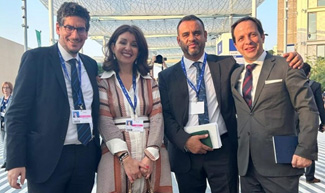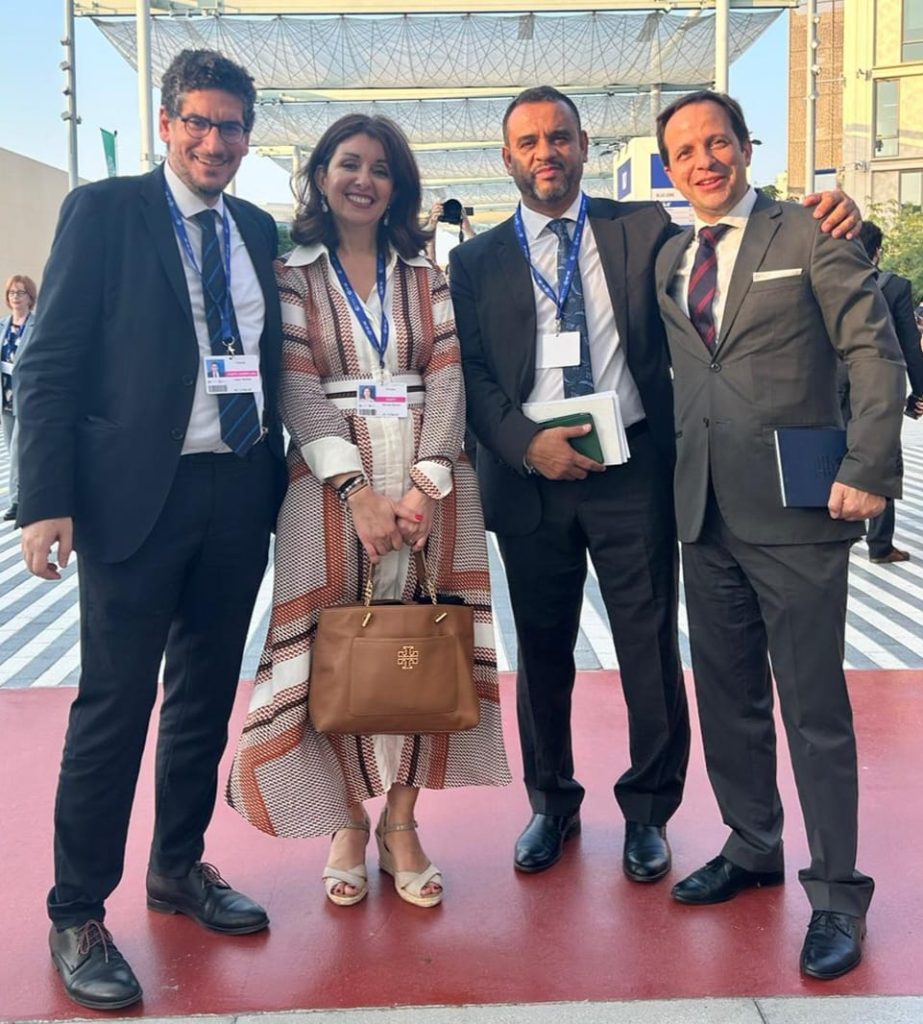
Water as a source of life and interfaith cooperation
The world is undeniably facing a challenge of historic proportions, that of climate change. It is the challenge of this generation. Lest we fail, the planet may not remain the hospitable place it is for humankind. The repercussions have already started to be felt and impact all of us in multiple ways.
This was the focus of the COP28 conference that took place recently in Dubai, UAE. World leaders, diplomats, academics, businesspeople and civil society activists came together to generate support for action to promote more sustainable policies. In this framework, we, Christians, Jews and Muslims have come together, to raise our voice in support of climate action and cooperation.
Faith communities are amongst the best placed actors to advocate on this topic. First, religions are based on values, and those values call on us to be measured, charitable and not inflict pain to others. Respecting the environment and safeguarding it for the future generations squarely fits in this outlook. Second, we represent large groups of concerned citizens who are organized in the local, regional, national and international level. In this sense, they are ready to be agents for change.
This was the approach of the panel we held at COP28 in its Faith Pavilion, the first time such a site was created, bringing together people from all corners of the globe with shared preoccupations. Our three organizations, the Islamic World Educational, Scientific and Cultural Organization (ICESCO), the UN University for Peace and the World Jewish Congress came together to discuss the topic of “Climate Change, Water and Peace,“ together with partners from the Muslim Council of Elders, the United Nations Institute for Training and Research, We are Water Foundation, the UNESCO Chair of the Abat Oliba University, the Global Hope Network International and the Reichman University.
The choice of water could not have been more pertinent. About 40 per cent of the global population live in a transboundary river basin and two billion people get their water from aquifers shared by more than one country. Climate change puts a stress on existing water resources, exacerbating existing tensions and possibilities for conflict both at national and regional levels.
However, the good news is that over the past two decades, academics have concluded that there exist a historical record showing that freshwater resources have motivated various forms of cooperation instead of conflicts. Water can be a medium for peace. There are several good practices and relevant examples on water cooperation at the regional and global level.
In our traditions, water holds a special significance and is a source of life and purification. Our sacred rituals and ceremonies often involve the use of water, symbolizing purity and renewal. In this way, water unites us in our collaborative efforts among different faiths to back for sustainable policies and to oppose climate change. Water should become an element of dialogue and unity among faiths and religions and such interreligious cooperation has an important role to play to guarantee the survival of our planet.
We pledge to continue our efforts, in an open and inclusive way, to join our forces for a safe and clean planet earth for all.
By Ms. Somia Djacta is Permanent Observer of ICESCO to UNESCO Headquarters in Paris; Ambassador David Fernández Puyana is Permanent Observer of UPEACE in Geneva and Permanent Delegate to UNESCO in Paris; Dr. Leon Saltiel is Director of Diplomacy and Representative at UN Geneva and UNESCO of the World Jewish Congress, and Mr. Mohamed Levrack, expert on mission of UPEACE.






